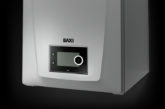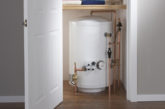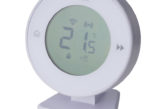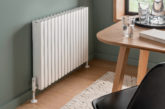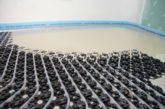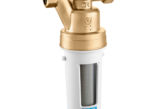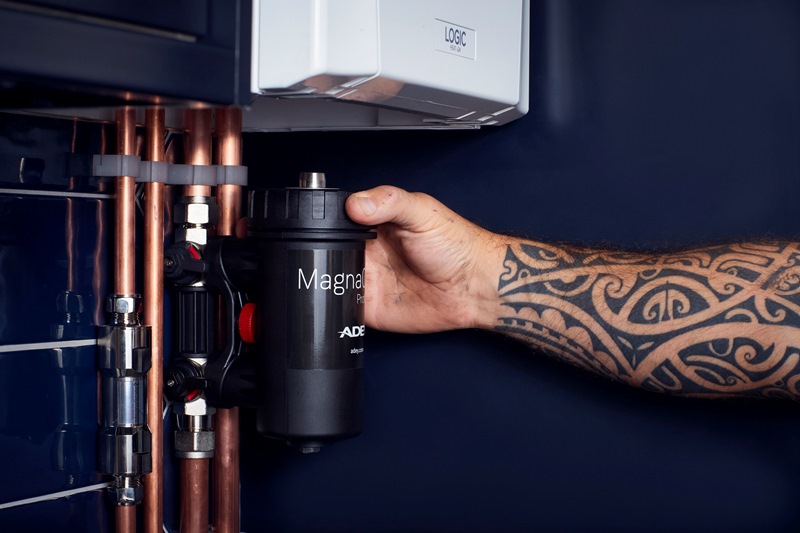
Colin Yearp, ADEY Head of Training, highlights how far the industry has come in developing the tools needed to better manage the health of the nation’s heating systems, why it’s important to pass on this knowledge to homeowners, and how never compromising on quality will help deliver the highest performance in heating protection and maintenance.
The cost of heating system repairs or, in a worst-case scenario, a replacement boiler are significant, especially if unplanned. And against the backdrop of the ongoing cost of living crisis and with energy bills remaining high, it pays to make sure that as installers, you’re doing everything you can to improve system efficiency. Not only will this obviously decrease the likelihood of an inconvenient and expensive breakdown, it helps reduce energy usage and carbon emissions too.
Alongside delivering these benefits for homeowners, with changes to Part L of the Building Regulations, the need to show compliance has also increased. Part L states that domestic heating systems should be prepared and commissioned to the British Standard BS 7593:2019.
The Benchmark Checklist can be used to show that commissioning has been carried out satisfactorily for the heating and hot water system and its heat generation source. Benchmark is like a ‘boiler passport’ which is assigned to the specific heating system at an address. Every qualified installer or engineer that works on that system, must record the activity undertaken.
Best practice
Following ADEY’s Best Practice approach has evolved to be the most effective way to deliver compliant proactive system protection and maintenance.
Not only is there a section in the Benchmark checklist that relates to each of the four steps in ADEY’s Best Practice, so installers can methodically evidence work as they go, it’s also been independently tested by KIWA Gastec to save up to 7% a year on gas usage*. The steps of Test, Clean, Protect and Maintain should be considered as a continuous cycle, crucially using high-quality filters, chemicals, and water testing products.
Testing the water gives important information about the state of the individual system. On-site digital tests, such as ADEY ProCheck, can help to advise the customer on what’s needed there and then, to get the job done in a single visit. Simply take a sample of water, use the dedicated test strips and card, scan with the ADEY ProCheck app, and get an instant on-site report and recommendations directly to your phone.
Cleaning the system before installing a new boiler is critical. ADEY’s MagnaCleanse is a fast and effective process for removing damaging black iron oxide magnetite as part of a system flush. But even brand new systems may have debris, so they should all be cleaned with chemicals formulated for heating or cooling systems.
Performance made easy
A well cleaned system health can start deteriorating quickly if good protection hasn’t been put in place. Correctly selected and fitted, the right filter makes it easy to capture and remove the particles that cause damage to the boiler components and pipework.
Using a magnetic filter for ongoing heating system protection now goes way beyond just ticking a box. And with different filters yielding different results, choosing a filter with optimum performance means paying attention to specific design details. After all, investing in the best performing filter from the outset will help customers avoid costly problems further down the line.
Magnet strength, water flow and quality is key. The magnet inside a MagnaClean filter is able to capture and keep hold of tiny particles as small as 2 microns in diameter, 60 times smaller than the width of a strand of hair.
MagnaClean’s magnet is also purposely positioned in the flow of the water to maximise first pass capture, preventing harmful magnetite and debris from circulating around the system and causing damage. Its unique design includes integrated flow diverters which channel the flow of water round the magnets several times, maximising the amount of sludge captured. And, crucially, water flow isn’t restricted, even when the filter is full.
The final best practice step will ensure the system’s ongoing health is maintained. An annual boiler service should also include a filter service and system water check, re-dosing with chemical protection if needed.
It is highly likely that most installers consider these water treatment solutions as the bread and butter of their service, but they’re messages that still need to be reinforced to the homeowner. Afterall, it can truly make a difference to heating system performance, crucially cutting household costs.
* Independent research carried out by KIWA Gastec based on average usage in the UK, saving is on gas usage only and does not include standing charges.



